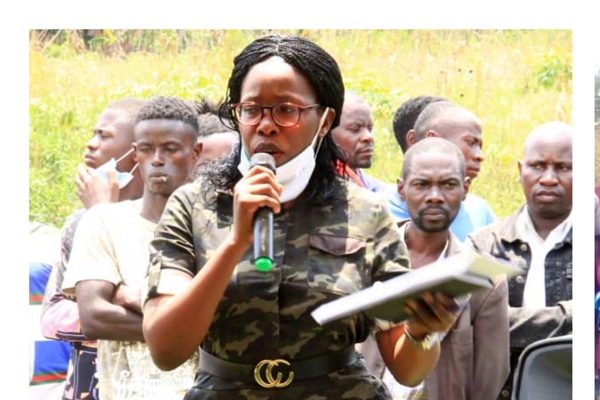Address land-related conflicts with urgency

Members of the Mpologoma clan are seen removing logs cut by people who they accuse of trying to grab their cultural land on August 13,2023. PHOTO/NOELINE NABUKENYA
What you need to know:
- The issue: Land wrangles
- Our view: “Land matters need fast and fair resolutions, as essentially, they are social problems that create cycles of distrust and violence.”
Land matters have become a nightmare in many Ugandan homes. On August 15, the government temporarily suspended Mukono land office to allow investigations into alleged corruption, issuance of fake land titles and double titling of land.
Earlier, a woman and her husband were axed to death by residents over a land dispute in Mubende District. The Balaalo are also conflicting with people in northern Uganda over land. The list of land-related conflicts is long and growing each day.
A 2020 report titled, “Deep dive into land justice in Uganda”, by The Hague Institute for Innovation of Law, indicated that one in every four Ugandans experiences land-related injustice, with vulnerable groups such as the poor, widows and orphans experiencing severe consequences.
The report also showed that some Ugandans are not certain about how to acquire land in a legal and secure manner, with many being ignorant about fair resolution of their land justice problems.
The costs involved in land dispute resolutions render many helpless. Many of the other concerns arose from unresolved land issues and rampant evictions of bibanja holders, especially in the central region.
During the inauguration of the Buganda Kingdom’s 31st Lukiiko (parliament) at Bulange, Mengo, last week, Kabaka Ronald Muwenda Mutebi II, condemned the delays by courts of law in dispensing justice to victims of land evictions and appealed to the Judiciary to expedite the process.
In October last year, Mr Jamson Karemani, the Judiciary public relations officer, said the High Court Land Division had a backlog of more than 10,000 land cases, with at least Shs3 trillion being held in the pending matter. This was attributed to understaffing within the Judiciary.
Land matters need fast and fair resolutions, as essentially, they are social problems that create cycles of distrust and violence. While most land in Uganda is privately owned in mailo, freehold, leasehold and customary tenure systems, our Constitution and the Land Act, 1998, should be our guiding light when dealing with these issues.
The Executive should support the Judiciary, especially in monetary terms so that more judicial officers can be hired to tackle case backlog. We commend the government’s recent appointment of more than 80 magistrates but more needs to be done. We encourage the few available judicial officers to continue working tirelessly to reduce the backlog.
We also need to build the capacity of local councils in handling land wrangles before they escalate. The public’s ignorance of their land rights needs urgent response. All these combined will save our country from more blood-letting chaos.



